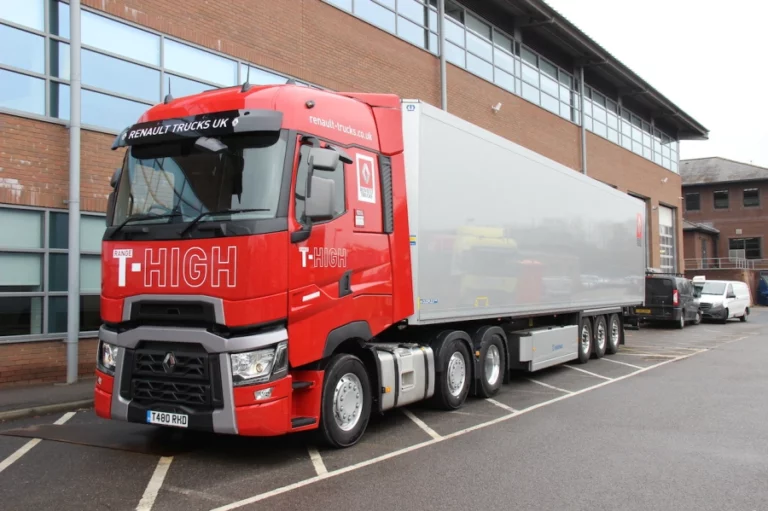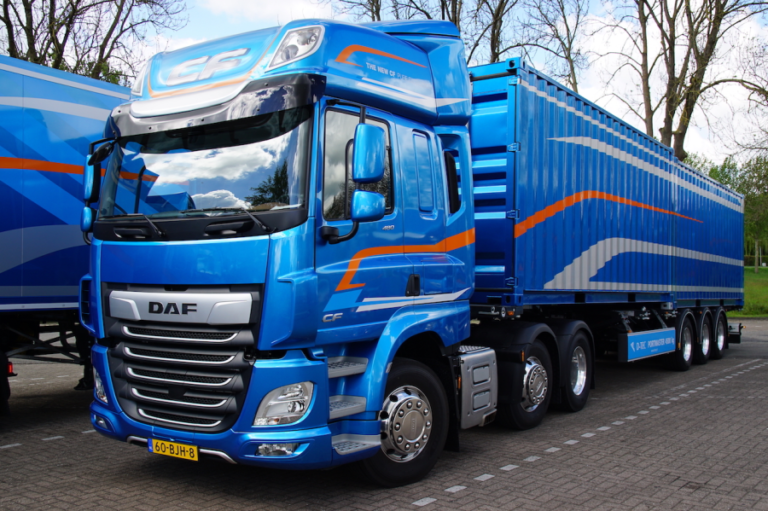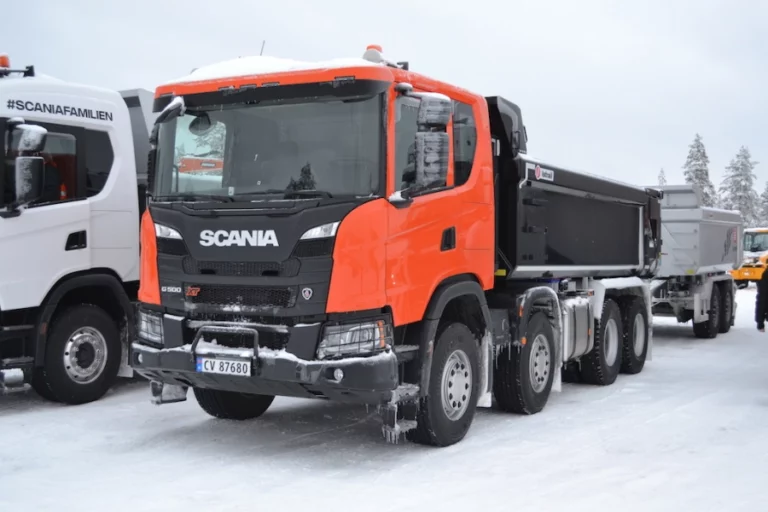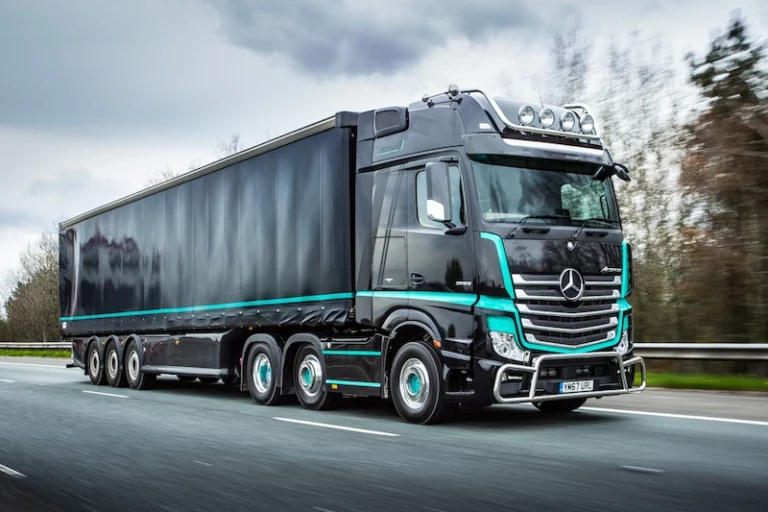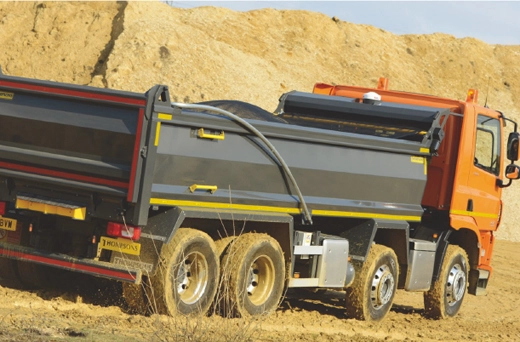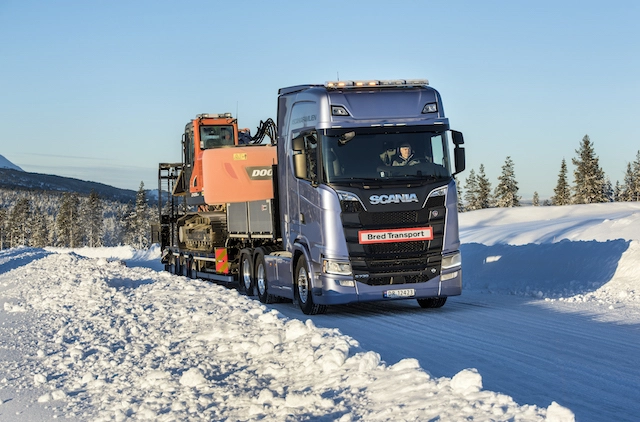We take the brand-new, right-hand drive Renault Range T High out on the road to see how it stacks up for British operators looking for a big-cabbed flagship.
Renault launched its Range T heavy trucks in June 2013 to replace the Premium as the ‘do it all’ tractor unit. It was, let’s be honest here, a no-frills fleet motor; one which would appeal to fleets, yet not be disliked by drivers. At the same launch, it also unveiled the Range T High which was effectively a replacement for the ‘love-it-or-hate-it’ Magnum.
The massive cab offered a flat floor which the Magnum had pioneered in 1990 and has since been copied by just about every other manufacturer, often with a better result. By the time it ended production, the Magnum was definitely somewhat dated.
But there was a catch with the Range T High. The new big cab was only available in left-hand drive only. Renault claimed this was because it felt there “wasn’t the demand” for it, although it was widely accepted among industry commentators that the real reason was parent group Volvo did not want the threat of losing sales of its FH Globetrotter XL to Range T Highs.
That did not stop a few operators buying LHD versions for the prestige, and you only have to travel on a major UK road to see plenty of the trucks from mainland Europe; Portuguese operator Patinter is certainly keen on them.
However, last year Renault relented and finally agreed it would now start to offer the Range T High in right-hand drive form for the UK and Irish markets. And for the trade press, the arrival of the first demonstrators and press fleet trucks has been widely anticipated.
The first right-hand drive Range T High in the Renault press fleet is now available for evaluation, and Trucking was quick to jump at the chance to get behind the wheel of the new flagship.
The truck
The model under scrutiny is the T480 version with the 480 bhp version of the 12.8-litre straight-six Euro 6 DTi engine, but you can order it at 440 bhp or 520 bhp. The 10.8-litre engine is not an option with this cab, nor sadly is the 16-litre.
The middle power output gives 2400 Nm of torque – the 440 bhp offers 2200 Nm while the biggest output is 2550 Nm, which suggests the 480 bhp is a perfect tool for 44-tonne work in the UK and Europe. The gearbox is a 12-speed automatic – there is no manual option – and the rear drive axle is 1:2.64.
The test truck was a 6×2 with a centre mid-lift pusher axle, but you can specify it as a 4×2, 6×2 rear tag axle or a 6×4 tractors – the latter for heavy haulage and landfill applications. 4×2 and 6×2 versions for drawbar use are also available. Wheelbase options on the tractors are 3700 and 3800 mm for 4×2, 3900 and 4100 for the midlift and 3200, 3400 and 3700 for tag-axle options.
The front suspension is a choice of leaf or air with front axles of 7.1, 7.5 and eight tonnes. Front and rear disc brakes are standard.
The cab was specified with twin bunks, but the top bank can be omitted and more storage boxed fitted to the ceiling instead. The unladen weight of the unit was 8800 kg, which for a 6×2 tractor with a large cab is very credible indeed and a quarter of a tonne lighter than a Scania S450, which is a direct rival.
The cab
The most relevant part of this test is, of course, the cab. Like so many press fleet trucks, all the option boxes have been ticked, so we were able to benefit from heater leather seats (I have to admit, I prefer cloth seats) and a host of other gadgets.
The big cab requires four steps to gain entry, like the Mercedes-Benz Actros Gigaspace. This means getting into the cab with luggage is a challenge, but the assumption is these trucks will be loaded up at the start of the week with equipment and provisions, and probably not unloaded until the end of the week or even fortnight. So drivers have to accept that trade-off – more room in the cab means more hassle getting stuff into the cab. Also, getting in an out of the cab during the day is anticipated to be less frequent on a long-haul truck.
The cab space inside is excellent – well thought-out and well-appointed. There is plenty of room for storage to place your week’s necessities. If we had a criticism, we found the floor a bit too slippery to walk on, but that’s easily addressable.
Such is the complexity of modern trucks that manufacturers offer handover training, and this is especially important here. With the Renault, for example, some of the buttons for the cruise control are not where you might expect them; they are actually located under the steering wheel arm, which is actually quite a sensible idea.
The stalk for the three-stage exhaust brake at first looks a bit flimsy, but actually it’s very easy to use and you soon actually appreciate its design and positioning. It’s clearly visible and will make you use it more than the footbrake.
On the road
Pulling a Krone tri-axle trailer and loaded to 44 tonnes, our route was from Warwick to Alcester and then up to the M42, M6 and A46, which gave a good feel for the truck with a mix of all types of road and some hills (albeit maybe not the most challenging of hills).
Despite having 480 bhp on tap, we were pleasantly surprised how well the truck pulled. If optimum power is 10 bhp per tonne, a 480 bhp engine is something of a luxury at 11 bhp per tonne; but we’ve driven some recent trucks with more power – a lot more power in some cases – which seem to labour more than this Range T. It certainly made us question why people could need over 500 bhp, let alone 600-750 bhp!
On the hills, yes, the truck obviously slows down, but a lot of that was actually due to the road and the traffic – parked cars and bends both being reasons to slow down. But on the hillier sections of the motorway, the T480 romped up inclines with no issues at all.
The steering was first rate, the truck handled superbly and the forward and rearward vision is very good indeed. Just a word of warning: you sit so high, you can approach a bridge and think ‘whoa, that looks low’ when in fact it’s not – you are just high! Magnum drivers will love it.
Verdict
We were very pleasantly surprised by this truck. This is a well-built vehicle and it handled and performed very well indeed. Many people could have their pre-conceptions about the Renault brand truly busted by this vehicle. Of course, the real proof will be when you have operated or driven a Range T High for six, 12 or 24 months. But even here, we don’t expect too many complaints and generally the praise we hear about Range Ts is very positive indeed. The High cab offers the driver a superb living area – obviously a lot of this benefit will depend on how drivers or operators specify the vehicle, but we challenge any driver on long-haul work not to be appreciative of the internal living space.
Lists prices are academic, but Renaults are known for being much cheaper than their Swedish and German counterparts. That means you get a heck of a lot of truck for you dosh in this case. Residuals on the Range Ts are also better than the Premiums and Magnums. Orders are now being taken, and we’re sure the T520 will be popular among small fleets, owner-drivers and firms which cross the Continent. This truck – especially the T520 – is up against some excellent vehicles in a very congested market. But if you are about to rush out and buy any flagship vehicle and have not given the Range T High the once-over, then more fool you. You could well be pleasantly surprised.


